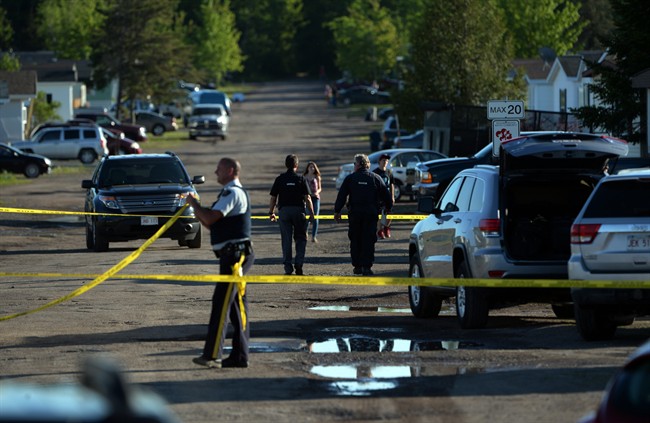In an internal memo to frontline officers after the Moncton shooting, Commissioner Bob Paulson wrote, “There are some reasonable and important questions to be asked.” But when 16×9 went looking for answers and for accountability, no one from RCMP management would sit down with us to explain who was responsible for years of delay in the carbine rollout and the sparse levels of active shooter training across the country.

In fact, upon learning that 16×9 was exploring sensitive issues regarding the carbine rollout, an email was fanned out telling officers not to speak with 16×9 and to redirect all queries.
One of the only times the Commissioner of the RCMP did answer questions about the Moncton shootings was the day of Justin Bourque’s arrest. Asked by the media whether the RCMP is prepared to respond to shootings, and why this has happened again, 10 years after the Mayerthorpe murders, Commissioner Paulson responded, “In terms of the recommendations that came out of our study of Mayerthorpe, we’ve implemented them all… We have all the weapons that we need… We’ve revised all our policies.”
But on June 4, 2014, in Moncton, officers say they didn’t have all the weapons they needed. They were missing a carbine – a rifle that could’ve put them on the same playing field as Bourque, who was armed with a semi-automatic rifle. The Codiac detachment in Moncton only had six carbines, all of which were over an hour and a half away, being used in the first ever carbine-user course in New Brunswick.
The independent review of the Moncton shooting that was released in January made 64 recommendations, among them:
- Immediate action to expedite deployment of patrol carbines across the Force
- Immediate Action Rapid Deployment (IARD) training be adapted to include various environments
- ‘Shock and disbelief’ after Manitoba school trustee’s Indigenous comments
- ‘Super lice’ are becoming more resistant to chemical shampoos. What to use instead
- Is home ownership only for the rich now? 80% say yes in new poll
- Invasive strep: ‘Don’t wait’ to seek care, N.S. woman warns on long road to recovery
The RCMP responded, accepting all 64 recommendations, although not necessarily committing to implementing them all.
Its response included:
- Carbines: RCMP will modify its training program, to allow more officers take part. Training candidate to instructor ratio adjusted from 2:1 to 3:1
- Carbine: Examine whether to include carbine training for all cadets in the Cadet Training Program at Depot in Regina***
- IARD: Course will be modified to reflect recommendations
- IARD: RCMP will consider whether to make the course mandatory for all members and whether it will be added to the Cadet Training Program.
***The RCMP previously promised this would happen at the Mayerthorpe Public Inquiry in February 2011. This has not happened yet and is now being ‘considered’.
Some entire RCMP detachments still have members without active shooter training or a carbine.
In Moncton, officers are pleased to see the carbine increasingly rolling out and training modified, they simply wish it didn’t have to come to this, “Now they’re rolling everything out,” one frontline officer told us,
“But it’s a little late. The party’s over.”
You can watch the complete investigation ‘Under Fire’ Saturday, March 28 at 7 p.m. on 16×9.
WATCH: 16×9’s Chief Correspondent, Carolyn Jarvis, talks to Executive Producer, Laurie Few, about her investigation “Under Fire”






Comments